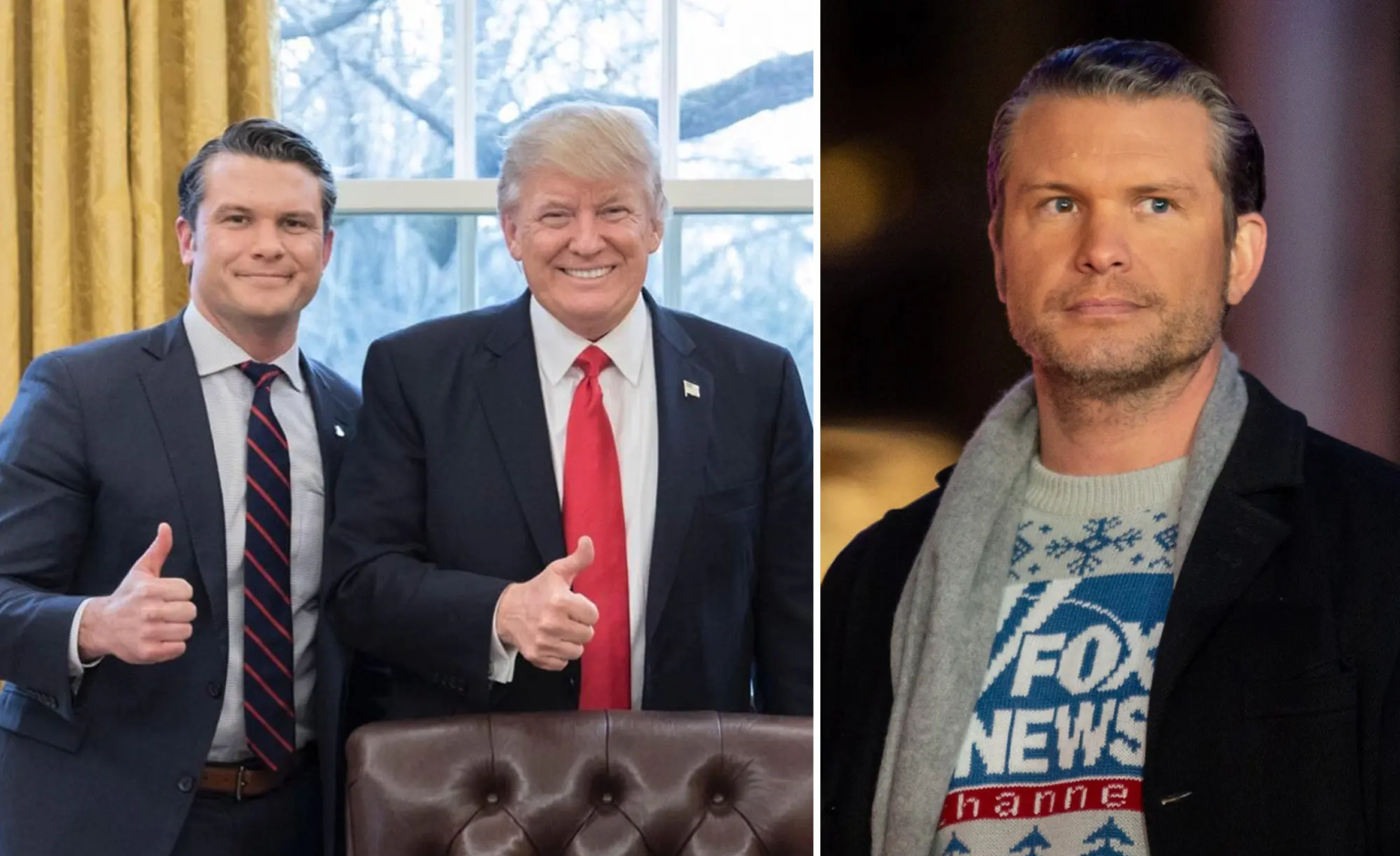Who Is Pete Hegseth?
Pete Hegseth has spent years in both military service and media, shaping his public persona as a defender of conservative values and a staunch advocate for veterans. A graduate of Princeton and Harvard’s Kennedy School, Hegseth served in the Army National Guard, with deployments in Iraq, Afghanistan, and Guantanamo Bay. His military service earned him two Bronze Stars and a Combat Infantryman’s Badge, solidifying his credentials among veterans and conservatives.

Hegseth has also been a visible figure on Fox News since 2014, ultimately becoming co-host of Fox & Friends Weekend. During his time at Fox, he authored War on Warriors, which critiques the treatment of military personnel and the politicization of defense policies. His sharp commentary on military and political issues has garnered a loyal following, and his presence on Fox has made him a well-known voice for military issues.
Hegseth’s Role as Defense Secretary
Trump’s nomination of Hegseth represents a clear pivot from traditional defense leadership choices. In his first administration, Trump appointed former four-star generals like James Mattis, who brought decades of high-level military experience. Hegseth, by contrast, brings a different blend of military and media experience. In a statement, Trump emphasized Hegseth’s alignment with his “America First” philosophy, describing him as “tough, smart, and a true believer in America First.” Trump praised Hegseth’s dedication to veterans and commitment to strengthening American military power.

Should he be confirmed, Hegseth’s tenure may involve a push for reforms within the Pentagon, aiming to streamline the institution and emphasize Trump’s defense priorities. However, his outspoken stance against certain military policies, such as the inclusion of women in combat roles and DEI (Diversity, Equity, and Inclusion) initiatives, could trigger significant internal and political debate.
Reactions from Lawmakers and Military Leaders
Hegseth’s nomination has elicited a range of responses. Supporters within conservative circles, including Rep. Mike Waltz, a fellow veteran, applaud the move, stating that “The Pentagon is in need of real reform, and they’re getting a leader who has the grit to make it happen.” Waltz’s endorsement reflects a belief that Hegseth’s outsider perspective could help address longstanding Pentagon inefficiencies.
On the other hand, some lawmakers have expressed reservations. Sen. Elizabeth Warren, a leading voice on the Senate military personnel panel, called Hegseth “unqualified,” citing his media background as a concern for overseeing national defense. Even some Republicans voiced cautious curiosity, with Sen. Todd Young of Indiana stating, “I want to give all of President Trump’s nominees fair opportunity to state their qualifications and their vision.”
Trump’s pick may also face hurdles within the broader defense community, which traditionally values extensive experience in high-level military strategy and operations—a domain where Hegseth’s experience may be perceived as limited.
Hegseth’s views on various military policies have generated both support and criticism. He has expressed opposition to certain diversity and inclusion efforts within the armed forces, dismissing them as “woke” and a hindrance to combat readiness. Hegseth has also voiced his opposition to women serving in certain combat roles, arguing that physical strength is a key determinant in these positions. His criticism of the military’s diversity programs has struck a chord with conservative audiences, but may provoke friction within the Pentagon and among policymakers.
An Uncertain Political Road Ahead
As Hegseth prepares for Senate confirmation, his unconventional background as a media figure, military veteran, and outspoken conservative will likely lead to a contentious debate. His nomination reflects Trump’s broader strategy to surround himself with loyalists who support his national security vision. Should Hegseth be confirmed, he would assume leadership at a time when the U.S. faces multiple global conflicts and military challenges, including rising tensions in Ukraine, the Middle East, and with China.
Hegseth’s supporters argue that his fresh perspective and dedication to American military power could bring positive change, while critics fear his lack of senior defense experience and conservative stances could create friction and uncertainty within the Department of Defense.
In Trump’s words, Hegseth is set to become a “courageous and patriotic champion” of U.S. military power—though whether he can garner the Senate’s support remains to be seen.


